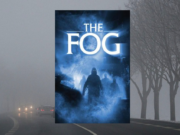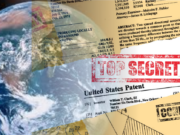by Mary W Maxwell, PhD, LLB
This article is a reply to Dalia Mae Lachlan’s comprehensive article on the recent “siege” that occurred in Martin Place, Sydney. Personally I’m sick of writing articles about falsity. My readers may think I am obsessed with that subject.
I’m actually not obsessed with falsity – I consider it normal and natural; it is always there when humans are in rivalry. Hardly worth writing about. Except that today we have the VERY WEIRD situation of most citizens refusing to believe that anything bad is occurring! So perhaps it’s worth displaying some wild instances of falsity to beckon them back to real life.
The Sydney siege, which I take to be a textbook case of falsity, is well suited to act as a base for studying any “terrorist” or “crazed gunmen” incident. I applaud Dalia for taking a calm, businesslike approach to the siege. I have asked her if she’d be willing to set up some sort of ‘register’ to which the public could provide input on any aspect of “terrorist” or “lone gunman” cases that may arise.
In her article, “Metadata Monis and the Sydney Seige, Part 2,” dated December 22, 2014, Dalia Mae Lachlan has already produced a checklist of 21 items to look for, to judge if the event was staged. Her list ranges from “a drill being conducted on the same day,” to “legislation waiting in the wings.” She is keeping an open mind about the Sydney siege. Frankly, my mind is made up, so I won’t be able to participate in her project. I lack objectivity.
So complete is my cynicism, in fact, that when I first saw the girls holding up the Arabic writing above the words “Lindt Chocolate, Merry Christmas,” I immediately figured that this terrorist event was intended to help sales of chocolate for the holidays, worldwide. (Gee, maybe someone will discover that there were put-options on Lindt Chocolate the preceding day.)
OK, I no longer think it was that. And, good news: Ms Lachlan has agreed to establish some sort of Register, at her very dynamic website, Gumshoenews.com, to which Australians, or anyone else, but no timewasters please, could deliver relevant information or insights. She will call it “the public’s register.”
Legalities of Interest to Amateur Investigators
Let’s sort out the bits of law regarding government’s obligation to share information with the public. If a case comes to court, the material is open for all to see, although some parts of a case may be redacted. But what about investigations carried out by the authorities, which we aren’t allowed to know about?
First, we should know that the political philosophy of Western democracies holds that government should “operate in the sunshine.” A clandestine meeting of officials is a no-no. In Queensland, recent legislation reinforced this. The Preamble of its 2009 Right to Information Act states:
“Parliament recognises that in a free and democratic society –(a) there should be open discussion of public affairs; and (b) information in the government’s possession or under the government’s control is a public resource; [Yeah, man!] and (c) the community should be kept informed of government’s operations, including, in particular, the rules and practice followed by government in its dealings with members of the community; and … (e) openness in government increases the participation of the community in democratic processes leading to better informed decision-making.” [Emphasis added]
At Australia’s federal level, a Public Interest Disclosure Act was passed in 2013. It declares its objects to be:
“(a) to promote the integrity and accountability of the Commonwealth public sector; and (b) to encourage and facilitate the making of public interest disclosures by public officials; and (c) to ensure that public officials who make public interest disclosures are supported and are protected from adverse consequences relating to the disclosures; and (d) to ensure that disclosures by public officials are properly investigated and dealt with. [Gosh!] [Emphasis added.]
So far, then, all is cricket. But you know it doesn’t really work that way. The Sunshine philosophy is in need of your support.
Terrorism Law
After 2001 (if you know what I mean), Australia signed treaties agreeing to make domestic law against such things as hijacking and money laundering. These are the so-called terrorism laws, now almost universal. Here is an excerpt from a “Report to Parliament of 2012-213,” by the Australian Security Intelligence Organization. ASIO boasts that it:
“initiated and continued security investigations into terrorism, espionage, foreign interference, communal violence and border integrity threats; issued adverse security assessments in relation to 45 passports (compared to 18 in 2012), completed the following: 27,149 visa security assessments, 159,288 counter-terrorism security assessments, and 23,522 personnel security assessments. [ASIO] increased the security awareness of the private sector through briefings.”
Hmm. Many things going on in Oz that you never think about while jogging around the Adelaide parklands…?
Amateurs Want To Know Two Things, Legally
As portrayed above, Australian law proclaims the right to know. (In Europe’s Human Rights Court, a right to know is sometimes interpreted under the right to life!) But now we ask: what is the possible penalty for an amateur journalist or sleuth (read: concerned citizen) who noses around? And if she publishes her comments, may she thus commit a crime? What if she mentions criminal behavior by government – is that against the national interest? (What does “national interest” boil down to?)
Laurence Maher (1992) has observed, “In time of war, the Commonwealth Government is amply equipped to implement a policy of total mobilisation for the war effort. The legal mechanism in WWII was the National Security Act, 1939. The Commonwealth was able to exercise extensive control over the dissemination of information and opinion by (a) the imposition of rigid censorship, (b) the prohibition of certain organisations whose activities were inimical to the war effort and (c) internment of alleged subversives.” [Emphasis added] Happily, that wartime law ceased in 1950.
Eight years ago, on December 1, 2005, it was remarked in The (Melbourne) Age: “Australia is descending to the standards of countries like North Korea, Syria, and Cuba by insisting on tough new sedition laws, Opposition Leader Kim Beazley says. The laws were about protecting politicians’ reputations, not Australians’ lives, he said today. The Government last night ruled out scrapping the controversial sedition provisions within its anti-terror laws, offering only minor changes instead.”
The Current Thinking of the Australian Federal Police
The AFP website that recruits employees says (on December 22, 2014): “The AFP continues to be concerned by the increasing risk of home-grown terrorists and the ‘lone actor’ threat [Oswald types]. This threat has intensified with a growth in self-radicalisation facilitated by new communication tools. [Never mind Zbigniew Brzezinski’s help.] Terrorist attacks in London [dear God!] and Boston [spare me!] highlighted not only the threat and risk that lone actors pose but also the difficulty in identifying vulnerable and at-risk lone actors prior to their committing an act.” [“Actor” may be the word!]
The AFP “continues to maintain Joint Counter Terrorism Teams in each jurisdiction comprising AFP, state police, and ASIO officers. [In US, local cops understandably hate the Joint Terrorism Teams, which emasculate them]. AFP Counter Terrorism International Investigat[ors] investigate Australian citizens who are alleged or known to be involved in terrorist activity offshore. … Regional Cooperation Teams in Jakarta and Manila provide investigative, forensic and analytical support to regional partners … [blah, blah]”
Lachlan versus Brandis
As covered in Gumshoenews, Oz’s Attorney General George Brandis proffered a new law in 2014 (blandly called The Terrorism Legislation Amendment Act), and Parliament duly obliged. Dalia threw a fit, and quoted Archbishop Desmond Tutu’s complaint that a similar new law in South Africa undoes everyone’s hard work against tyranny. Right.
The sinister feature of the new law – honestly, it vitiates Rule of Law altogether – is that it makes governmental wrongdoers immune from prosecution! Sure, they say it will only happen if the “security forces” are performing a special operation, but they are the definers of what constitutes terrorism. Maybe wearing brightly colored lipstick will qualify. We don’t know.
Be warned, then, that if you do the right thing, namely, talk about malfeasance and crimes of our “rulers,” you may indeed get ten years behind bars. Nevertheless I, of course, want you to talk till you’re blue in the face. Such a rule is rogue law and it should not be tolerated for one minute.
That said, I will recommend to Dalia that she NOT allow the register to name criminals in government in Australia. The public is so shy of doing it that this breach of the new law would instantly become the main talking point. Who needs it? There are other cases, such as the London bombings of 2005, to keep us busy — though maybe we could talk of Oz cases if they occurred in the 20th century. (Ahem, ahem, Port Arthur, for which a man is still in jail.)
So over to you, Ms Lachlan. It is marvelous to think that you could get around the problem of the corporate press! Just let the little guy present his information to you. Let him “register” it, the way we used to register our opinion in the olden days, by writing a Letter to the Editor. Ah, those halcyon days of faith!
— Mary W Maxwell is an aspiring jailhouse lawyer. She has published three articles about the Martin Place siege, all at Rumormillnews.com. They are: “Terrorists, My Arse,” “The Siege of Sydney and a Memory of Robin Cook,” and “Sydney Had Its Own Underwear Bomber.” She has also posted this video at Youtube, entitled: “Sydney Siege, Mythmaking”.






























